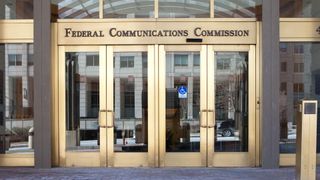President Biden picks Jessica Rosenworcel as acting FCC chief
Communications lawyer is a long-time advocate for equitable broadband

President Biden has chosen Jessica Rosenworcel as acting chairwoman of the Federal Communications Commission (FCC).
Rosenworcel is an FCC veteran. After a career practicing communications law in Washington, DC, she served at the Commission's Wireline Competition Bureau as Senior Legal Advisor and as an attorney-advisor in the Common Carrier Bureau's policy division. After that, she took a position as the senior communications counsel for the US Senate Committee on Commerce, Science, and Transportation in 2007.
She was confirmed as an FCC commissioner in 2012 and continued in that role under Ajit Pai, who she replaces as chairwoman. During her tenure, the FCC will likely be very different than it was under Pai, who pushed through rules that eliminated long-held net neutrality principles. Rosenworcel was one of three commissioners who voted to keep the rules in 2015 under then-chairman Tom Wheeler.
Rosenworcel is an outspoken advocate for public access to high-speed broadband, repeatedly warning of a digital divide for children, which she calls the “homework gap.” As a commissioner, she helped expand the FCC's E-Rate program, which offers discounted internet access to schools and libraries.
She will act as chairwoman until Biden officially nominates her or someone else for the position.
Enhancing broadband capabilities will be near the top of Rosenworcel's list at the FCC. President Biden promised to prioritize internet access for Americans as part of his “Build Back Better” plan, vowing to offer universal broadband.
Her appointment coincides with the release of the FCC's Annual Broadband Report compiled under Pai, which said that broadband rollout continued to occur on a timely basis. The report maintained its current broadband definition of 25 Mbps downstream and 3 Mbps upstream. It dismissed suggestions to increase the threshold, arguing the minimum standard is enough.
Get the ITPro. daily newsletter
Receive our latest news, industry updates, featured resources and more. Sign up today to receive our FREE report on AI cyber crime & security - newly updated for 2024.
Rosenworcel dissented. "We are in the middle of a pandemic. So much of modern life has migrated online. As a result, it has become painfully clear there are too many people in the United States who lack access to broadband. In fact, if this crisis has revealed anything, it is the hard truth that the digital divide is very real and very big," she said.
"So it confounds logic that today the FCC decides to release a report that says that broadband is being deployed to all Americans in a reasonable and timely fashion."
Cheap broadband is hard for low-income Americans to get. According to the Pew Internet Research Center, only 56% of households with incomes under $30,000 have household broadband access.
Other big issues on Rosenworcel's desk will include spectrum allocation and network security for 5G, a potential push for privacy rules under Biden, and whether to review Section 230 of the Communications Decency Act. The FCC could also wait until it’s under Democrat control to review the net neutrality rules.
Danny Bradbury has been a print journalist specialising in technology since 1989 and a freelance writer since 1994. He has written for national publications on both sides of the Atlantic and has won awards for his investigative cybersecurity journalism work and his arts and culture writing.
Danny writes about many different technology issues for audiences ranging from consumers through to software developers and CIOs. He also ghostwrites articles for many C-suite business executives in the technology sector and has worked as a presenter for multiple webinars and podcasts.





